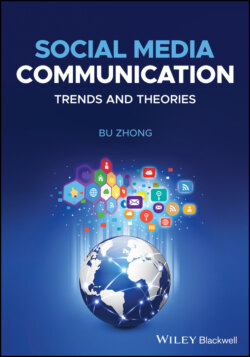Читать книгу Social Media Communication - Bu Zhong - Страница 10
Social Media in a Time of Distrust
ОглавлениеSocial scientists argue that social media should not be perceived as the culprit that caused a time of distrust. For many, the advantages of social media have been misdirected, which is in contrast to what we have known for decades about these information platforms. In those good old days, we marveled at how much social media had changed the way we lived. They changed how we communicated, how we consumed news and entertainment, and how we worked and conducted business. These changes have been taken for granted, especially for those who grew up with the rise of social media. However, many people fail to understand why hate speech, conspiracy theories, and other types of disinformation flourish on social media, thus compounding the surge of the exhausting period of distrust.
Hate speech is not merely a narrative that can hurt people’s feelings. Such “hate stratagems” work, like tactics of war to inflame the emotions of followers, denigrate the outclass, and inflict permanent and irreparable harm on an opponent (Kirk & Martin, 2020). The abusive, insulting, intimidating, and harassing disinformation could easily lead to violence, hatred, discrimination, or distrust. By using labels, epithets, threats, and lies, producers of misinformation could destroy political opponents, manipulate public opinion, and disrupt a democratic system like an election. Unfortunately, such misinformation and disinformation can go viral easily on social media.
